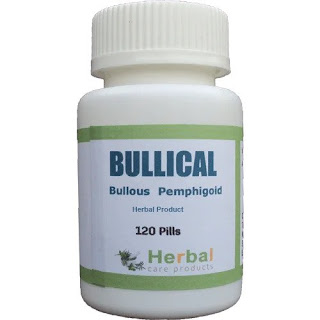Introduction
Bullous pemphigoid is a rare skin condition that causes blisters to form on the skin. It's often seen in people with diabetes, but it can affect anyone. If you're suffering from bullous pemphigoid, then you may want to know about Herbal Care Products that can help treat and prevent this condition.
Bullous Pemphigoid
Bullous pemphigoid is a rare skin condition that causes painful blisters to form on the face and body. It's also known as bull's eye disease, as the blisters look like a bull's eye or bulls-eye pattern.
The condition can be diagnosed by your doctor after they examine you and perform tests such as blood tests and skin biopsies (removing small samples of tissue). If they think you have bullous pemphigoid, they might prescribe medication to help prevent further outbreaks. However, some people may need surgical treatment if their blisters get infected or become extremely large enough that they interfere with daily life activities such as eating or sleeping comfortably at night time.
The Treatment of Bullous Pemphigoid
The Herbal Treatment for BullousPemphigoid can be done at home, and with natural remedies. The most common treatment for this condition is corticosteroids, which are antibiotics that reduce inflammation in the body. They can be given as injections or pills. Other medications include azathioprine (Imuran), methotrexate (Rheumatrex), cyclophosphamide (Cytoxan) and infliximab (Remicade).
There are several other treatments available for people with severe cases of bullous pemphigoid:
Home Remedies for Treating Bullous Pemphigoid Naturally
There are many Natural Remedies forBullous Pemphigoid that can help to reduce the symptoms.These include:
● Avoiding triggers and reducing stress. Some people may be more prone to having this condition because they have a family history of it, or they were born with defective skin proteins (known as autoantibodies). If you're one of those unlucky individuals, try avoiding known triggers such as sunlight or alcohol for at least three months before trying any additional treatments. You should also avoid NSAIDs (non-steroidal anti-inflammatory drugs), drugs like aspirin and acetaminophen/paracetamol, caffeine and nicotine--all substances that have been linked with a higher risk for developing bullous pemphigoid symptoms in some people!
● Reducing temperature extremes: If possible, try spending your time outdoors during warmer months instead; however if this isn't possible then make sure you wear long sleeves when going outdoors during cooler weather too! In addition to this we recommend wearing loose fitting clothing so that sweat doesn't build up inside clothing which could lead further discomfort due To heat retention within clothes causing trapped moisture trapped under layers making them uncomfortable against skin surface area where sweat builds up into blisters/bullae formation."
Special Tips for Treating and Preventing Bullous PemphigoidIn Patients With Diabetes
Bullous pemphigoid is a rare skin condition that can occur in patients with diabetes. It's also a disease that can cause bullous pemphigoid in the eyes and other parts of your body. If you have diabetes, it's important to take care of your skin so that you don't get this serious condition.
If you have diabetes, it's important to know what causes bullous pemphigoid so that you can prevent it from happening again in the future. The following tips will help prevent or treat bullous pemphigoid:
Natural remedies can help you treat and prevent bullous pemphigoid.
Natural remedies can help you treat and prevent bullous pemphigoid. Natural remedies are safe, effective, easy to use, inexpensive and can be used by people of all ages.
Natural remedies include:
Conclusion
We hope you’ve found this article helpful in understanding how to treat and prevent bullous pemphigoid with natural remedies. If you’re looking for a doctor near you who can help, we recommend finding an allergist or dermatologist who has experience treating this condition.






